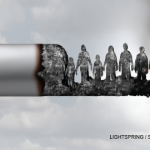Multiple studies have shown that stress increases the risk of rheumatoid arthritis (RA), including studies examining the role of post-traumatic stress disorder (PTSD) on male veterans of the Vietnam War. However, research has not examined this association in women or in the subtypes of RA. Using 22 years’ worth of data on a subset of female nurses participating in a prospective cohort study that ran from 1989–2011, Yvonne C. Lee, MD, MMSc, and her colleagues at Harvard Medical School and Brigham and Women’s Hospital in Boston analyzed the effects of PTSD on women as a risk factor for developing RA. The results of their analysis were published in the March 2016 issue of Arthritis Care & Research.
To assess trauma, participants (n=54,224) from the cohort study completed the Brief Trauma Questionnaire in 2008. Patients were categorized based on trauma exposure and number of PTSD symptoms: no trauma; trauma, but no PTSD symptoms; trauma with one to three PTSD symptoms; and trauma with four or more PTSD symptoms.
After baseline participants were excluded for prior RA symptoms and non-responsiveness, researchers identified 239 cases of RA. Through medical records, each RA diagnosis was assessed by board-certified rheumatologists, ensuring the cases met ACR classification criteria. The RA cases were further categorized as seropositive or seronegative based on RF and anti-CCP levels.
As a secondary objective, researchers examined smoking as a behavioral confounder and/or mediator in the relationship between PTSD and risk of RA, using secondary and subgroups for a multivariable analysis. Smoking status was established and updated via the original cohort study, enabling current researchers to calculate life-time cumulative pack years of smoking and assess the habit’s role in RA development.
The Results
“We found that women with probable PTSD were at an increased risk for developing RA,” write the authors. “This association was not substantially altered by the inclusion of smoking in a multivariable model.”
Compared with patients with no history of trauma, women with four or more PTSD symptoms had a 76% increased risk of developing RA (hazard ratio [HR] 1.76; 95% confidence intervals [CI] 1.16–2.67). Although previous studies have suggested the risk factors for RA subtypes differ, similar results were found for seropositive (HR 1.68; 95% CI 1.01–2.79) and seronegative (HR 1.97; 95% CI 0.93–4.17) RA.
“We observed a dose–response relationship, whereby the risk of RA increased as the number of PTSD symptoms increased,” write the authors. This finding was also true for the seropositive and seronegative RA subgroups.

